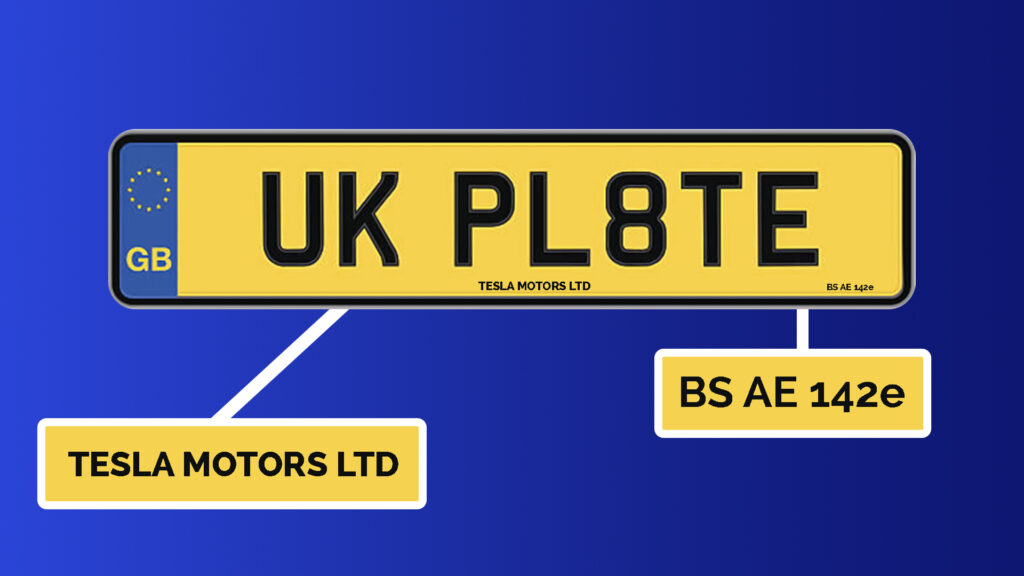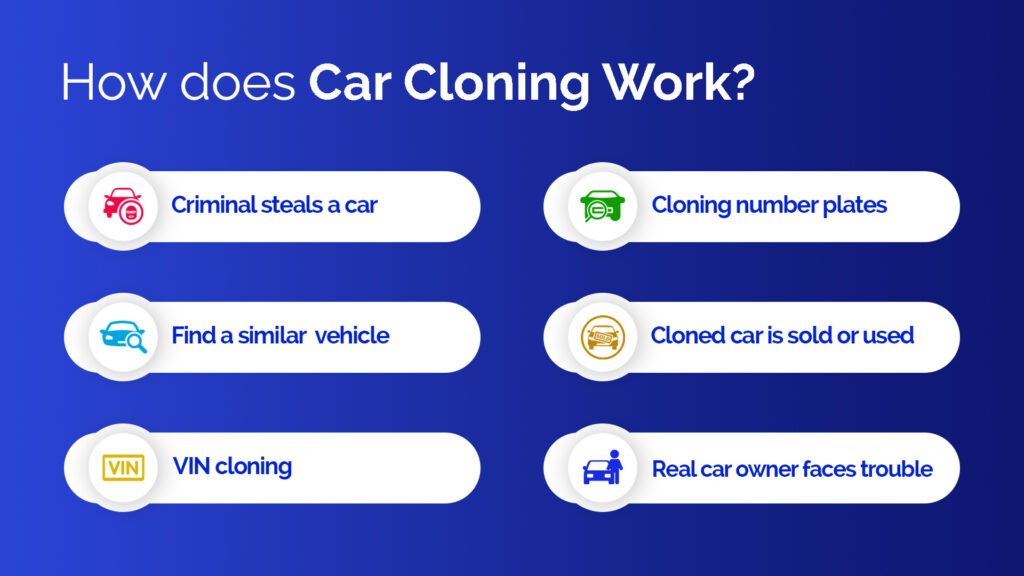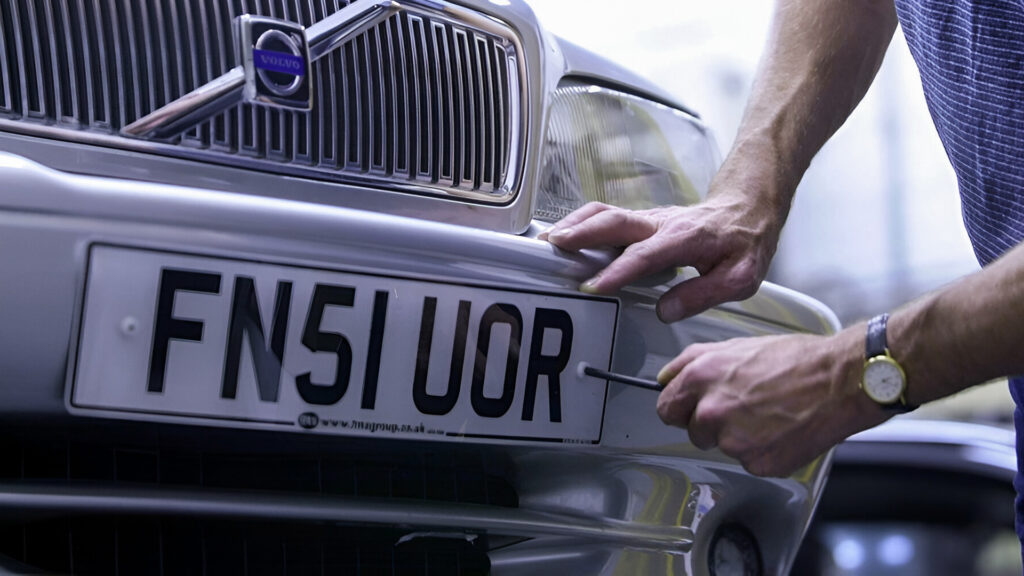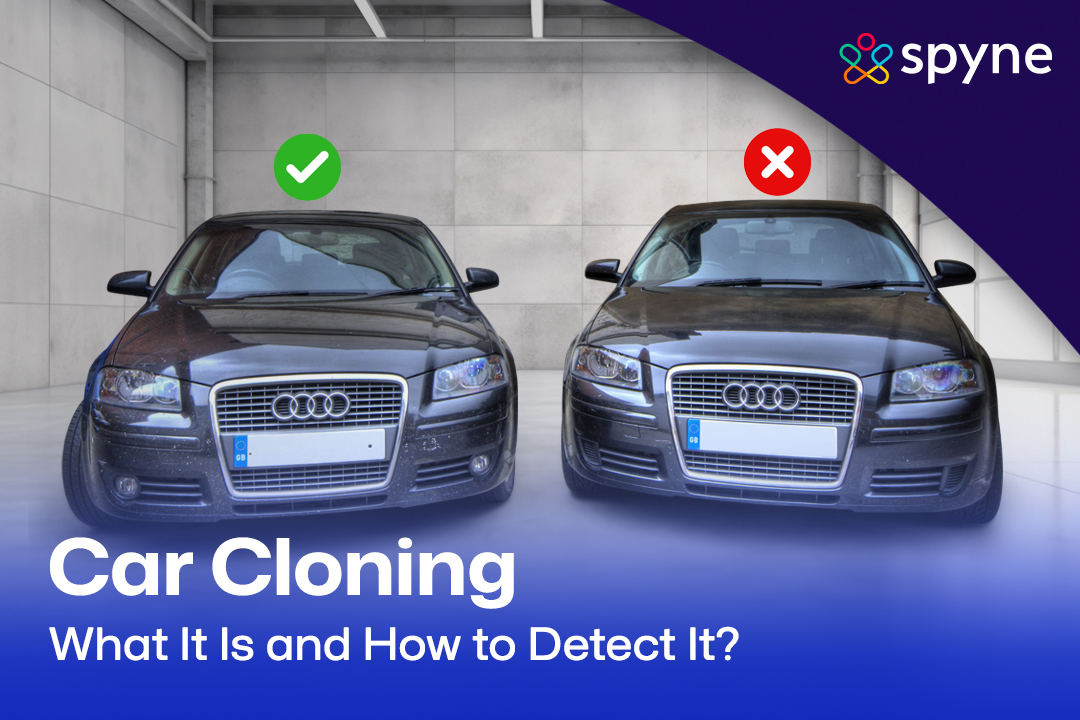Imagine getting a speeding ticket from a city you’ve never visited? Or worse, being questioned for a crime involving a car that looks exactly like yours? This is what car cloning looks like. And every day, it is becoming a growing problem for many. London has also revealed a 64% surge in cloned cars.
As a vehicle owner, even thinking about this is intimidating, let alone having it happen to you and facing a financial crisis later, that too through no fault of your own. So, in this blog, let’s break down what car cloning is and how to stay safe from it.
What is Car Cloning?
Car cloning is basically identity theft of your car. Typically, someone copies the details of your car onto a stolen or illegally registered vehicle. This makes it look legitimate. In turn, telling the police who is responsible for it.
The Head of Policy at RAC, Simon Williams, best explained what a cloned car is by quoting –
“A cloned car is essentially a car which has had its identity stolen or copied. It can simply be stealing a number plate, but more often than not it’s actually copying the identity of a car.”
But why do people clone cars at all? There are a few reasons for it:
- Sell a stolen vehicle: Cloned cars will look legal, and thus, buyers won’t suspect anything.
- Avoid detection: Criminals will be able to commit a crime without being traced.
- Dodge Fines or Penalties: The burden of rules, such as traffic fines, tolls, or speeding tickets, will shift onto the original car owner.
- Drive Without Documentation: Some clones can bypass insurance, MOT, and road tax requirements.
- Evade Law Enforcement: Cloned number plates confuse automatic number plate recognition technology, making tracking difficult.
When we think of cat cloning, there are two ways it can take place. These are:
VIN Cloning
VIN, also known as a vehicle identification number, is a 17-digit code specific to every car. Exactly like fingerprints, no two vehicles can have the same number. It encompasses information about the manufacturer, make, model, year, and unique features.
This number is stamped onto various sections of the vehicle, like the glove compartment, chassis, the bottom of the windscreen, and the right-hand dash panel. The car’s documents also mentions the VIN in most cases.
Being on various parts of the car, it is easily accessible from the outside. Thus, criminals end up making a note of it and using it as a replacement for their stolen vehicle. This process is also known as VIN cloning. And is quite hard to identify by an uninformed individual.
Number Plate Cloning

Number Plate cloning, as the name suggests, involves copying the number plate on a car. It is, unfortunately, way easier to clone. Then, they use a number plate maker, sometimes under the guise of making “show plates,” to create a fake plate.
Some companies also produce show plates for the vehicles they’re selling. These don’t have any such legal marking. Meaning, criminals can get one for stolen automobiles without any registration documents.
However, the VIN remains the same with cloned number plates. As most speed or security cameras cannot pick up the VIN.
How does Car Cloning Work?
Car cloning should have been a difficult process. Yet, it is not, and that’s what makes it so dangerous. Criminals solely require some stolen information and cloned plates to disguise a vehicle. Here’s a look at how this scam unfolds:
- Criminal steals a car: The whole cycle starts due to theft of a high-demand model or one with a common make and colour.
- Find a similar-looking legitimate vehicle: Then, they search for an exact copy of the vehicle through online ads, parking lots, or public spaces.
- VIN cloning: Once found, the VIN, along with tax or MOT details of the real vehicle, is copied.
- Cloning number plates: At times, the same number plate is also fitted to make the stolen car look legal.
- Cloned car is sold or used: Finally, the criminal may try to sell the car to a buyer or use it for illegal activities.
- Real car owner faces trouble: The real owner faces fines, claims, or even car repossession.

How to Check If a Car Has Been Cloned?
Checking for car cloning is especially important when buying a second-hand vehicle. You don’t want to get ripped off, as it leads to insurance issues and legal trouble. In worst cases, your car may also get seized, causing a loss of money. So here is how to check if a car has been cloned:
Number Plates
Ensure the plate has the BS AU 145e marking on the bottom right corner. It should also consist of plate marker details. These are essentials for any legitimate number plate. In case they’re missing, it’s a red flag.
One great way to stay safe when viewing online car listings is to use a number plate blur by Spyne, digitally covering or editing out the plate to prevent criminals from copying it.
VIN Cloning
The VIN is a 17-digit number found on the bottom left corner of the windscreen or under the bonnet. Be sure to check this and match it with the logbook. In case the number has been changed, you can identify so through signs of tampering on paint and bodywork. Other than that, the font should remain consistent, and the area should be clean.
Vehicle History (V5C Logbook)
Do a thorough check of the vehicle history through vehicle inspection. You should be able to see mileage and VIN against the V5C registration document. Also, ensure the registration number on the car and the logbook are a correct match.
Car Sale Price
Finally, if a car deal seems way too good to be true, it’s probably cloned. So be sure to compare listed prices. You should also stay away from heavily discounted sales. If the seller is insistent on paying in cash, it may be a sign of car cloning.
What to Do If Your Car Has Been Cloned?
Realising your car has been cloned can be alarming. But this is when you need to act quickly to minimise damage. The first sign of this is when you receive an unusual speeding ticket or penalty. There are also instances when the police show up at your place. Here is what to do if your number plate is cloned:
Contact The Police
Alert the police that an offence like this has been committed. This will ensure you are not linked to any crimes performed with the cloned car. You will also receive a crime reference number when reporting car cloning.
Share Evidence
Try to gather as much evidence as you can against car cloning. This can be receipts, statements from friends and family, or even CCTV footage. Showing this to the police acts as proof of your innocence.
Contact other Authorities
Once you receive the crime number, try to reach out to other authorities. For instance, if you’ve got an unknown speeding ticket, contact the NIP. Report the cloned number plate and share the crime number to support the fact.
Look for Information on Cloned Cars
You can find more information related to the cloned car by looking for a penalty charge notice. This includes a camera image of a car overspeeding. You can ask for the photographic evidence to be supplied of the same. Be sure to double-check the make, model, and other details. Then you can share this evidence with the police.
Contact DVLA
DVLA, or the Driver and Vehicle Licensing Agency, is also quite helpful. Just report a cloned number plate and they will issue a new registration.

Penalties for Car Cloning
Car cloning is considered a serious offence in most states and can have major consequences. Thus, when the criminal is found, they can go through any one of more of the penalties for car cloning:
| Penalty for Car Cloning | Details |
| Criminal Charge | Lead to charges like identity theft, handling stolen goods, and fraud. |
| Prison Time | Facing imprisonment of up to 5 years or more, depending on the severity of the crime. |
| Heavy Fines | Significant fines involving vehicle cloning and selling cloned cars are imposed. |
| Confiscation of Assets | The cloned vehicle and profits related to it are confiscated. |
| Driving Disqualification | Offenders lose their driving license to avoid such a case again. |
| Criminal Record | A conviction results in a permanent criminal record against them. This affects future employment or travel. |
How to Stop Car Cloning?
Controlling what criminals do or car cloning itself is impossible. But you can take steps to make your car difficult to clone. Some simple precautions reduce the chances of number plate cloning:
- Park Responsibly: Avoid leaving your vehicle at dimly lit or isolated spots for long periods. This is where criminals scout for vehicles. You can also install a CCTV camera in your own parking lot.
- Theft Resistant Number Plate: Invest in an anti-theft or tamper-proof number plate. These tend to break or distort when someone removes them. Use a number plate blur tool when uploading car photos. Reveal details only to serious buyers.
- Obscure Plate Numbers in Online Listings: Be sure to hide your number plates when putting car sale ads online. This can be done either physically by covering the plate. Or digitally through a simple blur effect. Spyne offers a complete online studio for number plate blur. At times, it may discourage sellers, so be sure to show registration details later on.
Reporting a Clone
Believe your car has been cloned or ended up buying a cloned car? You still have a chance to undo this mistake by reaching out to the right authorities. Here is a list of them to report a cloned number plate:
| Authority | How to report a cloned number plate |
| DVLA | Write a proper cover letter explaining car cloning and attach proof. You can also share a police crime reference number. |
| Local Police | Visit the local station or make a nonemergency line call. Explain the situation in full detail, including fines, evidence, or strange activity. |
| Issuer of Fine | If you’ve received an unknown fine, reach out to the issuer by following the dispute instructions. Be sure to include the crime reference number and proof that you aren’t the offender. |
| Insurance Company | You must also alert the insurer to avoid future complications or fraud claims. Again, share details and police reference. |
Conclusion
Car cloning is a major problem for any owner. But today, it is getting more real than ever, and it can happen to anyone. From unexpected fines to serious legal claims, they’re all signs of a cloned car. You can tackle this by staying alert, checking details regularly, and reporting suspicious activity. Despite being aware, if you still end up caught up in this mess, reach out to the respective authorities.
Most criminals clone cars through online listings. A great way to avoid this is by hiding number plates. Spyne helps you do that and much more on its online studio. So, try now and stay safe from vehicle cloning.
















